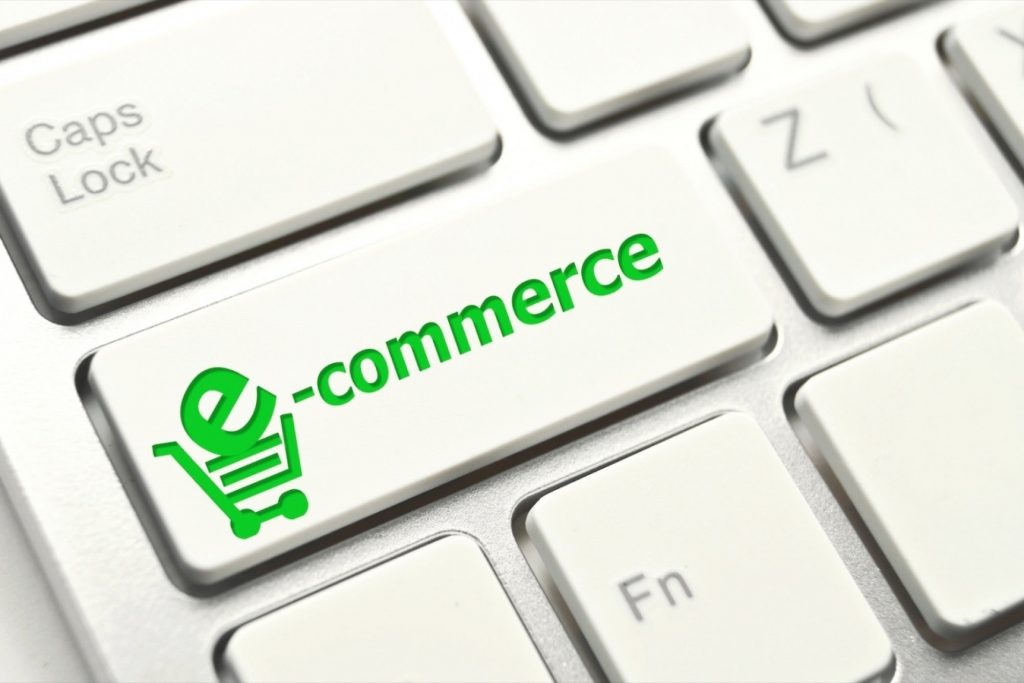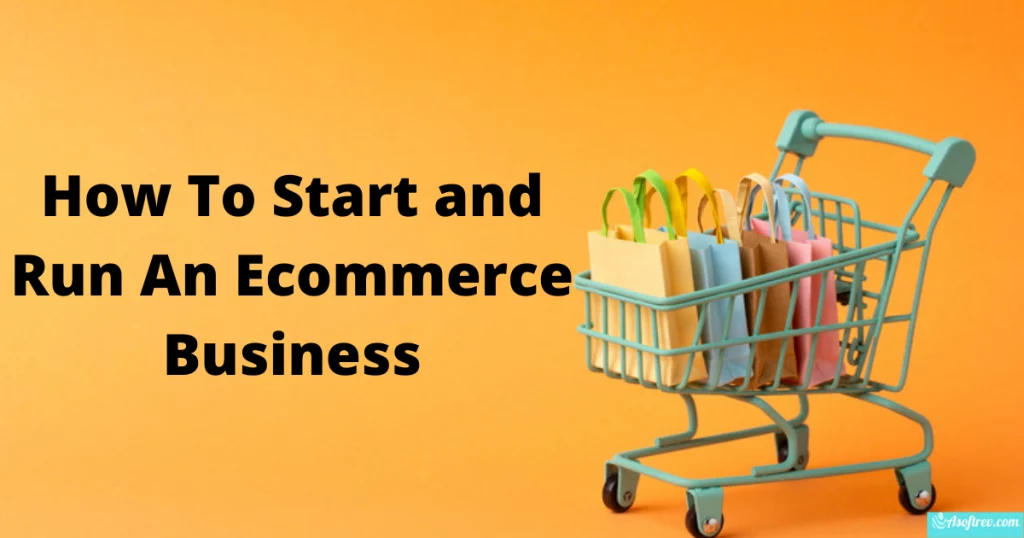Looking at the impact of the internet today you will see that the internet has improved people’s lives in numerous ways. To some, from the way they acquire information and to some from the way they trade using the internet as a base form.
Today we have buyers and sellers who are willing to use the internet to improve their lives by buying online. To the buyers they feel they can easily shop for items and they will be delivered to their doorsteps and thereby there is no need to go shopping in a physical store which results in time-wasting and to sellers, they try displaying possible needful products for the buyers.
In this post, you will learn how to start and run an ecommerce business as a professional and you will know what e-commerce business is all about.
What is ecommerce?

E-commerce which can also mean electronic Commerce in short is the transaction between a buyer and a seller which is done through online technologies and tools. It is the process of using the internet to buy and sell online.
This way the sales of all kinds of products both physical and digital services are arranged between two participants in the transactions.
The main benefit of this business model is convenience. E-commerce is up and running all the time, 24 hours a day, 7 days a week. This means that buyers can obtain products whenever they find it convenient without thinking about office hours and how to the location and similar things like that.
How to get started on starting an ecommerce business
On getting started with an e-commerce business you have to know at most the basic things about e-commerce and how e-commerce is been done. If after this you decide that e-commerce is an area you would like to explore as an opportunity to earn the profit you desire, then you will need to start with developing this plan in detail. The plan is as follows:
1. Decide the platform to use:
Before you start running an e-commerce business you need to decide on which platform you are going to use. The choice can be to have your own website or to sell on a marketplace.
And this choice depends on your business for instance if you are a small size company with limited resources to handle a website then starting with marketplaces is perhaps a better alternative. In case you have enough resources, having your own webshop is recommended.
However, you can also decide to handle setting up a website space in a marketplace and handling your website as well but to do this you have to plan and structure how to handle both. It is best recommended to put in all you have in one to be able to attain fast results than doing the two at once.
You can start up with the marketplace if you are less on budget and once you have started gaining more profits you can open up your own website and drive your already built audience (which you can get through email list building) to shop on your website.
This is because when you have your website you own everything and nobody will one day tell you conditions on how they want you to run your store or restrict most activities you want on your website.
This is likely seen in marketplaces but once you have your website, you own around everything just as you want.
2. Choosing a web domain or hosting platform:
In starting an e-commerce business, once you are through deciding the platform to use then you need to consider using one of the major e-commerce platforms like a website integration that will enable you to take advantage of numerous features to set up and manage an online store.
Here is a list of major platforms you can use:
*Shopify: Shopify currently hosts over 400,000 active online shops and the platform is constantly evolving with new apps and extensions. It has about three plans starting from basic to advanced which include more features.
*Woocommerce: woo-commerce is an ideal platform if you pose your store on WordPress which is a CMS platform. The woo-commerce software is specifically designed to be used in WordPress which provides hundreds of free and paid plugins to help you fully customize your store based on your requirements. Woocommerce seamlessly integrates with WordPress and it offers easy migration from other platforms.
Its features include:
*Selling both physical and digital products worldwide.
*Mobile-friendly platform *Marketplace with free and paid extensions
*Unlimited number of products *Pre-installed payment gateways
*SEO friendly platform
*Discount coupons/codes and third-party integrations.
Also, woo-commerce offers a self-hosted solution which means you have full ownership of the data on it.
*Bigcommerce: Bigcommerce offers a variety of solutions suitable for businesses of all sizes. The platform allows creating stores with features to help increase sales.
It’s a highly customizable platform with a great solution of e-commerce templates reliable hosting and a seamless migration process. Other benefits it provides include:
-Single page checkout
-Coupons, discounts, gift cards
-Product rating and reviews
-No transaction fees
-Unlimited products, file storage, and bandwidth.
*Magento: Another recognized platform in the e-commerce world is Magento as it offers solutions for small businesses as well as advanced technology and it has over 250,000 merchants that use the platform to grow their businesses and increase sales.
Some of the features it provides include:
-open-source platform-tools
-Tools to attract and retain customers
-Free Magento social integration to catalog products on social media and create advertisements. Thousands of plugins and extensions. For beginners, Magento offers a free community edition platform which is very good so you will experiment with the features and learn how to integrate and grow your e-commerce business with the platform.
To start hosting your website on these popular e-commerce hosting platforms, you will first need to acquire a customized domain name, and based on your budget here are three domain registrars to check out is Bluehost, Namecheap greengeeks, and more. After which you can choose a hosting platform you think would suit your e-commerce business.
3. Creating your e-commerce website
Regarding creating your e-commerce website you will need to explore some solutions and Infos to integrate into your website to boost its conversion. You can learn to create your Web Store using WordPress or Shopify.
When starting an e-commerce business, the website is the place you display and sell your e-commerce products. It’s also the place your customers will get to learn about the products, interact with you, get feedback and eventually buy your products.
Therefore it’s necessary that your website should be:
-Engaging for the users to start an interaction.
-Helpful for them to quickly navigate through and find products they need.
-Responsive for both desktop and mobile users.
-Effective to persuade visitors to buy.
When creating your webshop you can make your website have the following as a mark of professionalism: home page, about us page, terms and conditions, privacy policy page, contact us page, blog, and shop page.
Here is some other information you can integrate into your web store:
Shop: The shop or store is the e-commerce section of the website which requires e-commerce platform integration. To make your store fully functional you will have to integrate specific features that enable the online buying process. To some platforms, these features are already available and some platforms will require additional installations/integrations and normal setup.
Product information: In an e-commerce business product information has a huge impact on the performance of your web store and your ability to engage the visitors to convert them into customers and eventually complete a sale.
4. Marketing
When starting an e-commerce business, another important priority needed is to know the best way to drive traffic to your ecommerce store. Traffic here simply means people who would come to your website to purchase the products your sell, and this marketing can be divided into two which are: Free marketing and Paid marketing.
Free marketing is the process of using organic methods to drive people to buy from your website and this can include using S.E.O, social groups, and pages you’re conversant with while paid marketing includes using ads like Facebook, Instagram, Twitter, and more paid means to drive your traffic to your webshop.
Also read: Free And Paid Marketing|| Everything You Should Know
Conclusion
Having known how to start and run an e-commerce business, you can take each step as a guide and practice more including your idea.
Also, you will have to check other websites and grab some ideas, monitor their weakness by going through their reviews, and improve on any bad reviews they had on your own store.
Do you have an e-commerce business you are doing and want to advance on? leave us a comment and we will give you some guidance you can apply for your webshop.
Also Read: What to sell to make money online
Also Read: How to start an online business ||Beginners Guide

